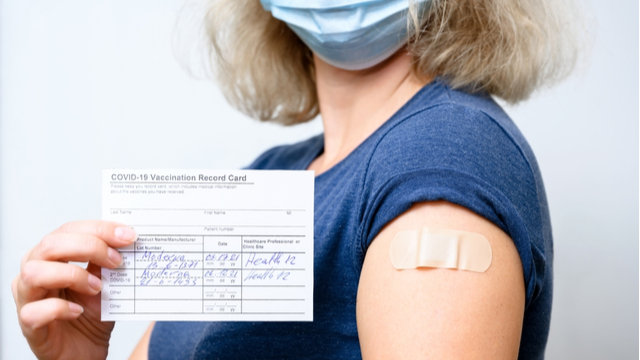On December 6, 2021, New York City Mayor Bill De Blasio, who is leaving office at the end of the year and likely running for governor in 2022, announced a first-in-the-nation COVID-19 vaccination mandate for workers and customers at indoor dining, fitness, entertainment, and performance venues. The new requirement is in addition to the proof-of-vaccination mandate already in effect for customers at dining, gym, and entertainment venues. Read on to understand how the rule will affect your business.
New Requirements
What. Per Mayor De Blasio’s website, the vaccine mandate covers all private-sector New York City workers. Most public-sector workers in the city are already subject to a shot mandate. The new rule is projected to apply to roughly 184,000 businesses. In addition, it will affect child customers at many commercial venues.
When. The private-sector worker mandate starts on December 27. Per the website, the approach is being phased in for child customers who seek to enter indoor dining, fitness, entertainment, and performance venues: “The program will require children aged 5-11 to show proof of one vaccination dose for those venues. Starting December 27th, New Yorkers aged 12 and older will be required to show proof of two vaccine doses, instead of one, except for those who have received the Johnson & Johnson vaccine.”
How. This is the best part. There are no details yet. Instead, per the website, “the City will issue additional enforcement and reasonable accommodation guidance on December 15th, along with additional resources to support small businesses with implementation.”
The website helpfully provides that “acceptable proof of vaccination includes a [U.S. Centers for Disease Control and Prevention]-issued vaccination card, the New York State Excelsior Pass, the Clear Health Pass, and the NYC COVID Safe App.” While there was no mention of religious or disability exemptions on the website, news accounts report they will be included in the later guidance.
Questions Abound
The first question is why the announcement is happening now. New York City has close to a 90% vaccination rate and already subjects businesses to a proof-of-vaccination mandate for customers. Mayor De Blasio’s announcement coincides with an outbreak of the feared omicron variant. While the strain appears to be more virulent than others, news accounts report it is less lethal than the original virus and perhaps more akin to the common cold. Far from being a needed public heath tool, the new mandate may actually be linked to the mayor’s political aspirations.
The second question is whether the new law will actually go into effect. Governor Kathy Hochul, who supports decentralized COVID-19 policies, doesn’t appear to object or express concerns. Mayor-elect Eric Adams seems to be taking a wait-and-see approach, and his spokesman was quoted as saying he will review all such policies when he takes office. With a federal court having halted the Occupational Health and Safety Administration’s (OSHA) emergency temporary standard (ETS), which requires vaccination-or-testing for large employers, it’s entirely possible the city’s new private-sector mandate may also get put on hold.
The third question is: If the law goes into effect, what are the requirements? For example, will the mandate apply to all businesses regardless of size or just larger employers like the OSHA ETS? Will the city’s rule apply to remote workers who are exempt from vaccine-or-testing under the federal standard? What will the religious and disability exemptions look like? Will the city provide a sample policy? What are the penalties for noncompliance? Hopefully, many of the answers will be provided in the December 15 guidance.
Takeaways
New York City employers (which are already reeling from previous mandates, a shrinking talent pool, and supply-chain worries) keep getting body blows. The new regulation won’t help, and the fact that a “lame-duck” mayor would jam yet another mandate on the way out the door—with no guidance or lead time to implement—is astounding. Stay tuned for the pending guidance, and consult with employment counsel on how best to comply on the fly.
Paul J. Sweeney is an attorney with Coughlin & Gerhart, LLP, in Binghamton, New York. You can reach him at psweeney@cglawoffices.com.

